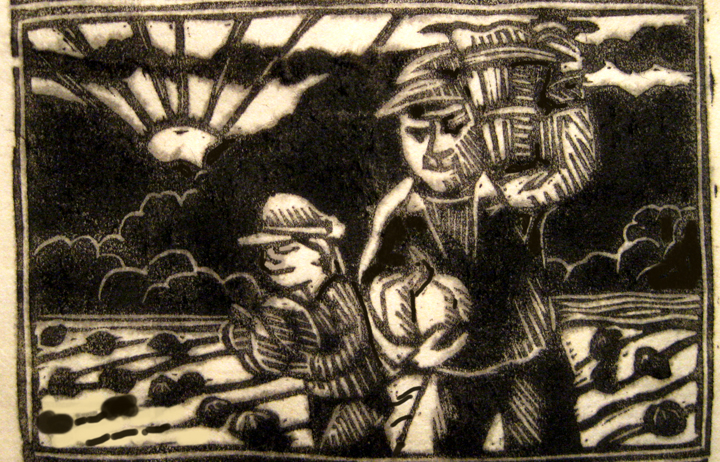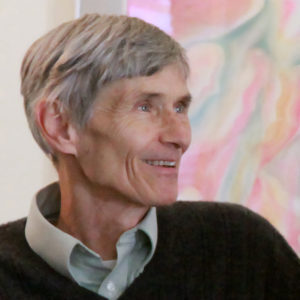Overcoming Anxiety
By Dennis Klocek 6 min read

A useful skill for human beings is to learn how to contact the timeless inner being who is constantly remembering how life was before things got anxious. To do this it is necessary to develop a practice to consciously draw attention away from the anxious parts of life and transform the anxiety into gratitude.
Most anxiety has roots in childhood experiences in which we are forced to give away our power to someone else. These early formative events create shadows that live as anxieties in deep places in the soul of an adult.
To deal with these anxious shadows it is useful to learn to focus attention and redirect it to the True Self or the real “I”. The True Self is a being in every human who whose function is to remember how life once was before the shadows of anxiety arose in us. This is deep remembering.
Of course, this is easier said than done. Usually, unconscious feelings of resentment rise to the surface of the mind as soon as any kind of deep remembering is done. Then anxiety over loss of power starts all over again.
Question/Listen Exercise
An effective technique for strengthening the mind to deal with anxiety is to regularly ask questions of ourselves but pretend as if we really didn’t expect an answer. This allows us to watch our mind sample the different aspects of a question rather than trying to answer it once and for all.
For instance, we can ask ourselves things like, what am I grateful for in my life?
Asking a question like that is the first part of the exercise. After the question is asked then the next part of the exercise is to listen intently as the question disappears into silence.
To begin with, this exercise is done at one or two specific times of day in order to establish a rhythmic force in the mind. After a time the exercise begins moving rhythmically it appears to us spontaneously, usually when we are bored or starting to feel some sort of anxiety. Often boredom is the doorway for anxiety. We can overcome this by controlling the mind.
Control of the mind is the beginning of the work on the self. In this exercise the most important part is to consciously refrain from trying to find the “right” answer. If we don’t expect “right” answers all of the time it is much easier to develop an inner practice. We ask a question like this to show ourselves how the same question asked, again and again, begins to take on a life of its own. The consciously repeated question, when followed by silence, begins to move towards insights seemingly without our help. In asking questions like this we are performing a specific kind of concentration exercise that keeps the mind fluid yet concentrated.
Concentration exercises are the foundation of inner work. The purpose of inner work is to eventually become self-motivated and flexible when solving problems in life. Motivation and flexibility make it possible to withstand the soul anxiety that makes life difficult both mentally and emotionally. Without working on the inner self every day, going inside of ourselves to look for solutions to problems that are creating anxiety can be like a descent into hell. Without daily work on ourselves, any change in life usually moves us towards crisis.
The purpose of inner work is to eventually become self-motivated and flexible when solving problems in life. Motivation and flexibility make it possible to withstand the soul anxiety that makes life difficult both mentally and emotionally.
To overcome anxiety the key is to establish rhythm in the inner life. In order to establish a rhythm, for a period of about five minutes each day, repeat the question to yourself listening into the silence each time. Try to stretch the listening time between each repetition.
It is also very good to choose a particular time of day to do the exercise. This creates a rhythm that helps the work along. In five minutes it may be possible to ask the question and listen into the silence many times. The key is to keep asking and keep listening to the silence. Any answers that arise can be journaled and then forgotten. The exercise is simply to repeat the sequence: question / listening.
In practice
Once the rhythm of question/listening is established at a particular time of day, the exercise often appears in the mind during times when stress or anxiety is developing in life. To be more useful in life, the question/listening can be tailored to the particular circumstance by choosing a theme that is linked to the anxiety.
Suppose, for instance, we are experiencing anxiety about the war or terrorism or the economy or global warming. All of these are linked to oil and the use of fossil fuels. None of them can be solved by any personal effort because they are too big and out of individual control. This is the perfect recipe for anxiety.
To overcome this we can focus the question we are asking around the issue of gratitude for all that we receive from using fossil fuel. Exercises aimed at establishing gratitude in contexts where we have no control over the issues can go a long way in healing anxiety.
Let’s look at how such an exercise might be structured.
A big source of anxiety and unconscious guilt for people today is the use of gasoline and oil. This can be worked with by adding another exercise to the basic question/silence exercise just described.
When I pump gasoline into my tank I imagine that the gasoline that is actually entering my tank is flowing backwards from my car back through the pump nozzle and into the tank in the ground. From there I imagine the gasoline coming out of the tank in the ground into the tanker truck from the refinery. I imagine a fictional driver “Bob” or whoever, and I thank “Bob” for driving the truck to deliver the gas that I can use to live my life.
It doesn’t matter that the image of “Bob” is an accurate image of some actual person. What matters is that emotionally I am contacting some human who served my life with a deed of sacrifice. That helps to ward off fossil fuel anxiety.
The next time that I do my question/listen exercise, I begin it by inserting the little moving image of the gas flowing out of the gas tank of my car through the nozzle into the ground and into “Bob’s” truck.
Then I ask my question, “What am I grateful for?” and listen into the silence, repeating the whole thing several times. If I do this for a week it is guaranteed that the next time I see a tanker truck delivering gas to a gas station I will have a strong experience of humans serving other humans. This is the key to healing nameless anxiety.
Once I feel that I have thanked “Bob” sufficiently. I continue my exercise at the gas pump by tracking “Bob’s” tanker truck to the refinery where I meet “Shirley” the lady who makes out the invoice that is on “Bob’s” clipboard. I thank “Shirley” for her work and I thank “Bob” for his work and then listen intently as my gesture of thanks towards them flows into silence.
The next period of question/silence also includes “Shirley” and her contribution to my welfare. I can keep adding persons to my gratitude list until I feel the anxiety begin to dissolve and creative solutions begin to appear to me.
In this way I can contact numerous unrecognized persons who are serving me by working in the fossil fuel industry. Through this exercise of gratitude, I can personalize the issues around the use of fossil fuel and find the serving human being at the basis for most things encountered in daily life.
This goes a long way towards dealing with the nameless and pervasive guilt and anxiety that live in the souls of most people today surrounding the loss of personal power to impersonal organizations and exploitative economic systems.

Dennis Klocek
Dennis Klocek, MFA, is co-founder of the Coros Institute, an internationally renowned lecturer, and teacher. He is the author of nine books, including the newly released Colors of the Soul; Esoteric Physiology and also Sacred Agriculture: The Alchemy of Biodynamics. He regularly shares his alchemical, spiritual, and scientific insights at soilsoulandspirit.com.
4 Comments
Leave a Comment
Similar Writings
Easter Sunday
On the handout, go to figure 3 on the lower left. That’s an alchemical diagram of the relationship between what’s known as salt and sulfur. This relates to the idea of form and then sublimation. And so the Alchemist had a word for the way in which the invisible became visible. They would look at…

Wonderful🙏
Thanks for making contact.
So simply and wonderfully written. The suddenly realisation of how much other people contribute to my life moved me to tears. Thank you so much
Gratitude makes my heart feel warm , there is so much to be grateful for.